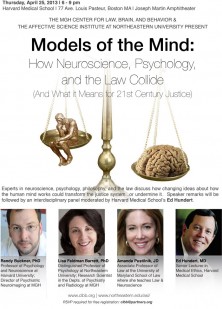Scientific American Blogs | June 30, 2014 | Mark Fischetti
Philosophers have debated for years whether we deliberately make each of the many decisions we make every day, or if our brain does it for us, on autopilot. Neuroscientists have shown, for example, that neurons in the brain initiate our response to various stimuli milliseconds before we’re even aware that we’re taking such an action.
This heady debate has hit a very practical road in the past decade: whether individuals who commit crimes are actually responsible for them. Lawyers have argued in court that if the brain determines the mind, then defendants may not be responsible for their transgressions.
Michael Gazzaniga, director of the SAGE Center for the Study of Mind at the University of California, Santa Barbara, is at the forefront of the research into free will, and its implications in courtroom trials and in the expectations of different societies. His thoughts and proclamations are captured in an engaging video called Free Will, created by Joseph LeDoux, a well-known expert on the emotional brain at New York University. The video is the second in a series he is putting together with director Alexis Gambis called My Mind’s Eye. (The first episode featured Ned Block on the mind-body problem.)
Read the rest of the article and view the video on Scientific American Blogs, or read more about Michael Gazzaniga here.






